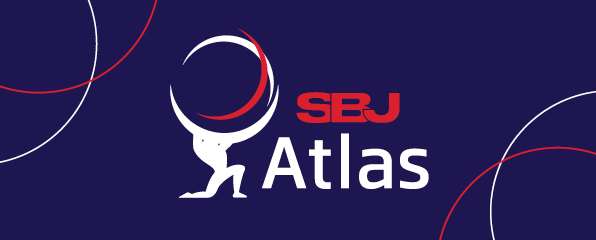Limelight for athletes leads to greater need for cybersecurity expertise
Professional athletes, especially new ones, are often trying to figure out new teams, new cities, new coaches and how to navigate family life (if they have one of their own). The most overlooked boundary they consider attention for is their cyber/digital footprint. Cybersecurity is often a measure of insurance that most advisers simply fail to help their client plan for.
When you’ve arrived at a certain level, in the case of high-net worth-individuals, new problems you’ve never encountered before arise -- or change the way they present themselves. Your level of exposure has increased tenfold, especially if you are in the limelight.
When your face is on television and you’re discussed by the media, you cannot escape the attention -- positive and negative -- you will undoubtedly receive. You can’t move the same way anymore. You and your family are now potentially under scrutiny and opinions abound. Things that were once innocent aren’t as innocent or as private as once perceived. With a recording device in nearly everyone's hands, and salacious gossip driving the sheer will of many, the magnetic force that attracted the rise of your success didn’t filter out all the potential problems.
The best-prepared families hire a third party to penetration-test their systems. They should also have a backup and recovery strategy, and a team composed of a cybersecurity monitoring firm, lawyers, an insurance agent, damage control media specialist and possibly law enforcement -- in the case of ransomware, fraud or extortion. Sounds like a lot? Imagine the irreparable damage that was done to numerous careers because of words exchanged in what the celebrity perceived to be a safe space.
Some things you can’t come back from. Sponsors moved away from Tiger Woods due to his infidelity scandal, and with the sending of salacious videos and photographs via target-rich apps, it’s only a matter of when more active and notable public figures are targeted.
How do you mitigate such potential and problematic pestilence from occurring? Enter cybersecurity insurance. You are more at risk than you think. Beyond relationship-wrecking photography and sliding into the wrong person’s DMs, athletes also find themselves at the bitter end of financial crimes and mismanagement of funds and fraudulent schemes. Most professional athletes I work with aren’t as diversified as possible.
Leaving themselves exposed with millions in only ONE bank account is a blind spot waiting to be taken advantage of. Another is not being properly insured against homeowner liabilities for luxury properties, luxury car insurance, and potential cyberattacks. With the world moving to a digital front in more areas, it is imperative that athletes take precautions against vulnerable entry points in their portfolio.
One of the biggest is falling for outright scams! All of the very expensive stuff that can happen to you can be mitigated by appropriate insurance, but the trick here is to make sure that the insurance you are buying will mitigate the actual risks. A data breach insurance policy will not help you if you’re the victim of identity fraud. If you’re a victim of revenge porn, you’re going to want to sue and to investigate. A law firm can help, and you want to have some insurance that will cover you for that as well. It’s really a question of testing out what the policies mean.
Twenty years ago, catfishing wasn’t as prevalent as it is now, and with that, potential leeches attempt to exploit you. Measures like background checks, developing honeypots, and more are advised to help mitigate risks.
Private jets and super yachts are particular targets for compromise, not just because of their passengers but because they rely on a host of connected devices. Transmitting geolocation -- detailed travel itineraries, schedules regarding the transportation and guarding of minor children -- needs to be especially guarded.
An obvious but often overlooked danger: seemingly innocuous posts about things like travel plans and birthdays on social media, which can give potential hackers and other criminals critical information, both about a family’s whereabouts and, equally important, their absences.
High-net-worth individuals must remember that their children may be targets for espionage to gain information about the family, ransomware attacks and even physical attacks. Remember, attackers are morally compromised and do not have a basis for the attack being launched on a child versus an adult.
Back in the early 2000s I recall a Dallas Mavericks player becoming the victim of fraud from his chef, who was adding extra zeros to his manually written paycheck in order to embezzle money. Recently, Steve Harvey came forward sharing his experience with a fraudulent CPA who -- despite Harvey doing his part -- withheld checks to pay his taxes. To guard against potential malfeasance by household staff, I recommend monitoring their credit card and banking information in real time -- with proper notification -- to ensure no sudden affluence out of proportion with their means. Always have someone watching the watcher, and checking the checker.
As we push toward a digital-only world, the biggest trick is to make sure you purchase the right type of insurance. Invest in conversations with professionals who are invested in you and your family’s security measures and also have knowledge needed to coordinate such efforts. As we move toward a cashless society, among other details of technological integration into the indivisible thread of our lives, knowing your options to secure you and your family’s holdings is key.
Danita Harris (@danitamharris) is managing partner and CEO of GUICE Wealth Management, a boutique firm catering to the sports and entertainment industry. She is the author of "9 Secrets to Make Money in the NIL Era" and "50 NIL Money Makers."





